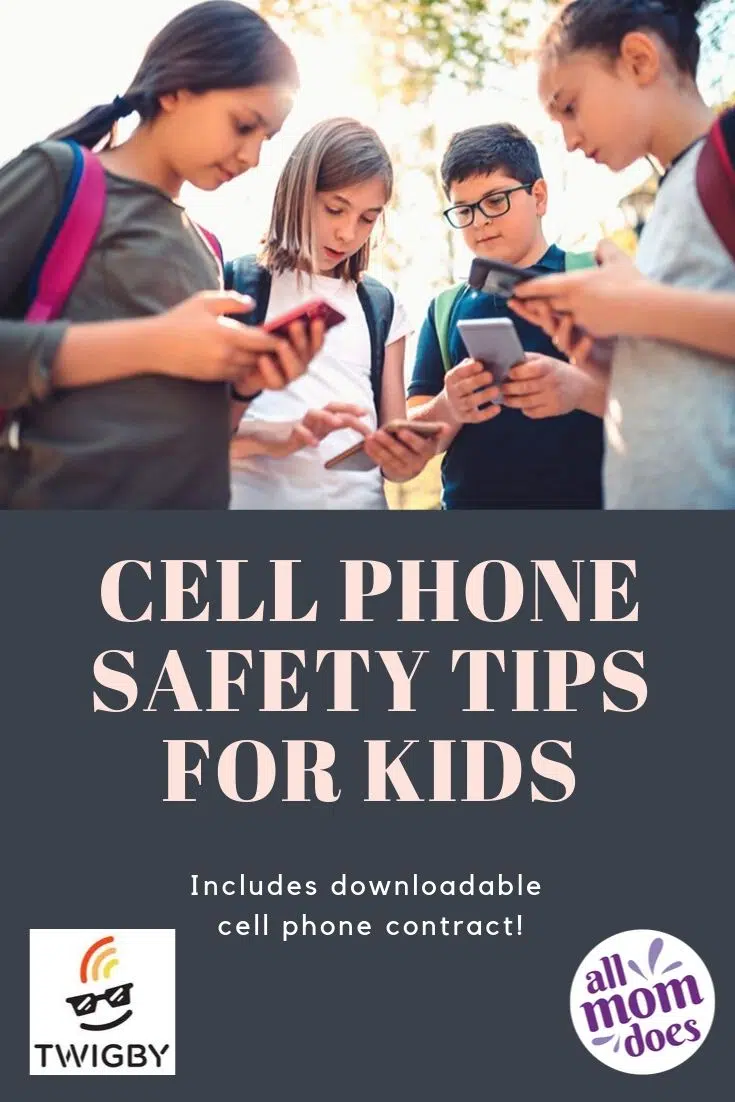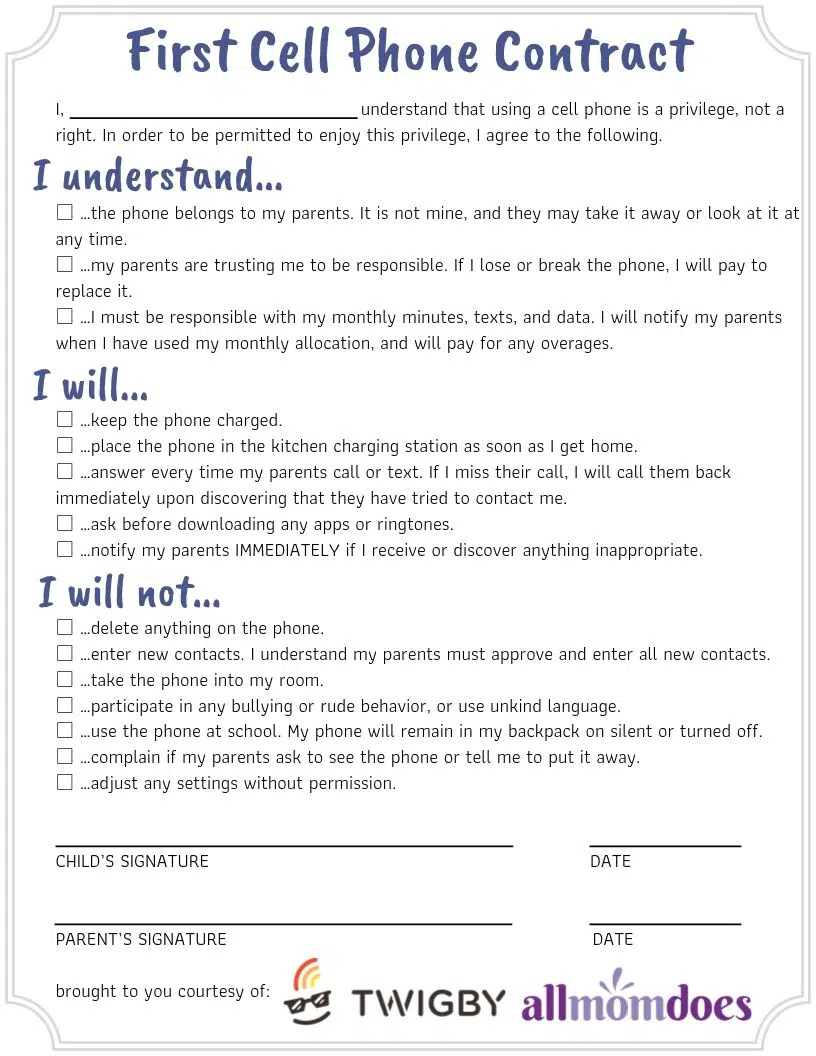Safety is the biggest reason parents hesitate to get a cell phone for their child. And while often the big issues come to mind like predators, cyberbullying, and inappropriate content, it can be some of the more subtle threats that tip the scales – like infringement on family time or our society’s collective screen addiction.
This post is sponsored by Twigby.
But here’s the thing, parents. Our job isn’t to protect our children from the world. It’s to teach them how to live in it. And we do that by establishing routines when they’re young that will become habits in adulthood.
We tell them to brush their teeth every night. We prod them to eat their veggies at dinner. We instruct them to pick up after themselves when they leave their mess on the floor and endlessly remind them to say “please” and “thank you.” And we do this not just because it’s important for their immediate well-being, but because we trust that these things will stick for the long haul. We’re playing the long game of parenting.
So why aren’t we doing the same with technology?
Yes, there are some safety concerns associated with getting a child a cell phone. But the truth is that cell phones also offer parents a whole new layer of additional safety by giving a child the ability to communicate easily with their parents. With a little effort, you can easily mitigate the safety concerns associated with a child having a cell phone, help them establish healthy technology habits while they’re young, and enjoy the additional protection and convenience that comes with allowing your child to have a cell phone.
Here’s how.
Choose Your Phone Wisely. Be careful about the type of phone you choose. If your primary goal is communication, choose a “dumb” phone or flip phone. If you’re considering a smartphone, think about why you feel your child “needs” one and decide if those reasons are worth the additional risk.
Limit Usage. Help your child develop healthy lifelong habits by establishing usage boundaries. Don’t let them take their phone to bed, and have a central location where everyone leaves their phone when they’re home so they’re not constantly connected.
Don’t Give Your Child the Wi-Fi Password. If your child’s phone has wi-fi capability, don’t give them the password for your home network. Yes, they’ll be able to connect to public networks when they’re out and about, but by limiting their connectivity at home you’ll significantly reduce their exposure to apps and web content and prevent them from developing the need for constant connection.
Opt for the Minimum. Your child doesn’t need unlimited access to data. Intentionally choose a plan that offers only what you think your child will need; don’t default to an unlimited plan simply because it’s a great value. This will keep your child’s usage in check and force them to budget their talk, text, and data usage.
Set Up Overage Restrictions. If available, set up overage restrictions so your child can’t continue using data or texts beyond what you’ve purchased in their plan. If restrictions aren’t available, set up alerts so you know when your child is approaching the limit.
Teach Responsibility. Make your child responsible for any costs related to usage overages or phone replacement if it’s lost or broken. Explain that having a cell phone is a privilege and can be revoked at any time.
Stay Vigilant. Look through your child’s phone regularly. Peruse their social media, read through text threads, and check their browsing history. A cleared history or nonsensical threads (indicating some messages have been deleted) are cause for concern and follow-up.
Establish Guidelines and Enforce Them. Set clear expectations for your child’s cell phone use. Don’t assume they understand appropriate use. Lay out your expectations in a written contract that is displayed in their room so they can refer to it as needed. If they break any rules, enforce a consequence. DOWNLOAD A CELL PHONE CONTRACT HERE.
Model Healthy Technology Boundaries. Your child will learn what they see. Establish healthy technology boundaries in your own life to help your child establish them in theirs.
At AllMomDoes, we don’t believe in fear-based parenting. We believe in wise, intentional parenting that equips our kids to handle the things they’ll be faced with as they grow. A cell phone is a fantastic tool that helps keeps kids and parents in closer communication, makes family scheduling easier, offers a layer of protection to kids, and gives added assurance to parents.
Use our cell phone contract to set clear expectations with your child and start teaching them how to properly manage technology in their life. Download the contract here!
Twigby is slashing cell phone bills across the US and with options that start at less than $10, it’s the perfect choice for your child’s first cell phone. From data-free plans to unlimited connectivity, there’s an option for every need – and NEVER a long-term contract. Plus, with their free optional overage protection, you can be assured you’ll never get a surprise on your bill. Twigby offers a variety of affordable phone options too. Everything from basic to smartphone, iPhone to Android, and everything in between. For a limited time, sign up with Twigby today and save 25% off your first six months!
RELATED:
The Best Plans for Your Child’s First Cell Phone
Why I Caved and Got My Tween a Cell Phone – and How I’m Keeping Her Safe

 Read more of Kristina’s contributions to allmomdoes here.
Read more of Kristina’s contributions to allmomdoes here.


















